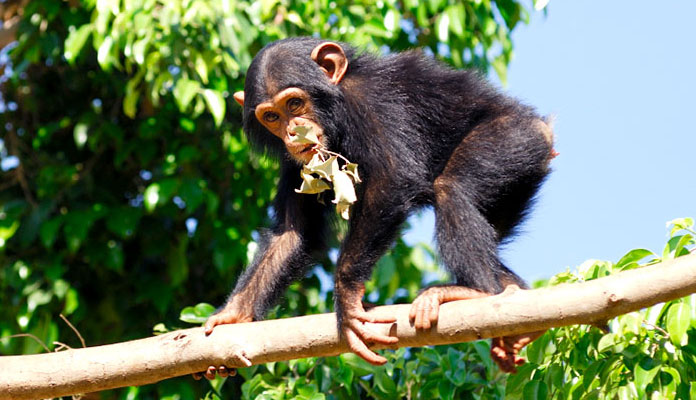Interesting discovery: Human brain is more flexible than chimp brain
A very interesting new study shows that the human brain is more malleable and responds to environmental changes than the brain of chimpanzees.
To study this issue, a team of Georgia State University scientists, George Washington University and the University of Texas Anderson Cancer Center, analyzed 218 human brains and 206 chimpanzees. .
Specifically, the researchers looked at the relationship between genetics, brain size, and brain structure between these two subjects.
The brains are scanned with MRI waves and then conducted to reconstruct the medical landscape to adapt, monitor and record the process of mobilizing the brain in the form of three-dimensional technology medicine.

New research shows that human brains are more flexible than chimpanzees. (Photo: San Diego Zoo)
The results show that the brain size of humans and chimpanzees has many similarities but in terms of brain motility, plasticity is different.
The human brain moves faster, more flexible and more flexible. Meanwhile, the chimp brain works more slowly, the brain tends to exist in solid form, less flexible, less active.
The cause was found that the olfactory brain is highly dependent on the genetic gene of the genetic nerve. But the nature of the genetic nerve gene in chimpanzees works relatively passively despite the change in the living environment, culture, living habits, community mobilization .
Meanwhile, the human brain is less dependent on genetic genes of the neuronal brain, the human brain is relatively flexible, this plasticity depends entirely on the change of cognitive thinking, the environment, the child's ability to move. people in changing living conditions - the study's lead author, Aida Gomez-Robles, scientist at George Washington University Center, said in a press release.
This study is published in PNAS magazine.
You should read it
- ★ Medical discovery: Head injuries can alter genes in the brain
- ★ Transplanting a mini-human brain into mice causes concern about smart new hybrids and increasingly more human-like
- ★ Scientists read the bird's brain and know what it is about to sing
- ★ How does daily activities affect the brain?
- ★ Breaking into the bank holds 1,000 human brains in the UK